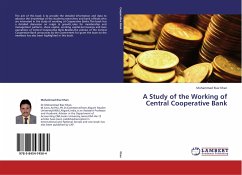The effort of cooperative enterprises to establish self help organization that make the optimum use of resources and draw advantage from socio economic progress is mainly rest up on the government policy toward these organizations. The policy also varied from country to country typically due to the variation of the political economy philosophy of governments. The government policy regarding cooperatives in communist countries is based on the concept of collective ownership of production means of people and the distribution of income on the basis of labor contribution. In free market economic systems cooperatives are seen to be nearly private sector organizations; but also state support if and where their functions were deemed valuable. Hence, the cooperative policy of the Federal Republic of Ethiopia should be analyzed in a sense of private business operating in free market economic system. Therefore, the paper analyzed the current cooperative policy of the government mainly concerned about the financial decision of these organizations in general and dividend policy issue in particular.








